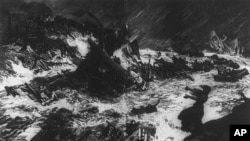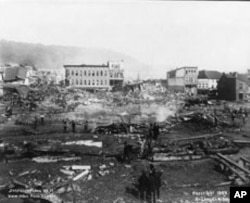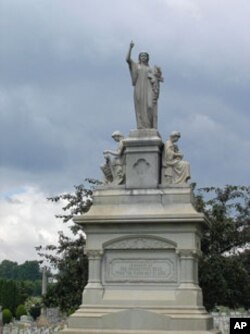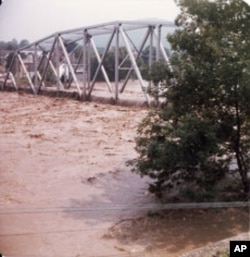One of the most famous small towns in America is Johnstown, Pennsylvania, population 24,000.
Unfortunately, it owes that fame to a tragedy.
In the late 19th Century, Johnstown was the nation's mightiest steel center - more prosperous than Pittsburgh - turning out steel rails and barbed wire. The air was yellow and black from the smoke, but the pay was good.
The town lay on a flat plain at the base of an Allegheny Mountain valley so steep that the hillsides rose straight upward along the Little Connemaugh River.
It was a natural funnel, pointed directly downhill at Johnstown.
High in those mountains, behind a crude earthen dam, wealthy Pittsburgh industrialists and their friends sailed yachts on a pretty private lake.
Naysayers warned of a catastrophic flood should the dam break, but amid the prosperity, the warnings were ignored. Town leaders said any floodwaters coursing down the mountain would flatten out once they reached the valley.
But one spring night in 1889 and on into the next day, drenching thunderstorms pounded the mountainsides.
The lake rose, intensifying pressure against the dam.
With the force of a giant waterfall, the dam burst, launching a wall of water 18 meters [60 feet] high down the funnel toward Johnstown faster than warnings could be sounded.
Grinding up trees, houses, boulders, locomotives, humans, and animals in its path, it slammed into Johnstown, pulverizing the center of town.
Afterward, most observers blamed the rich yachtsmen and their leaky earthen dam for the deaths of 2,200 men, women and children.
These days, tourists make a point of visiting a museum that tells the dramatic story. Ironically, it's located in a building donated by industrialist Andrew Carnegie.
He was one of the owners of the pleasure club whose members cavorted high above ill-fated Johnstown, Pennsylvania.







